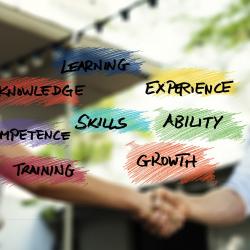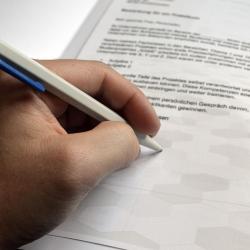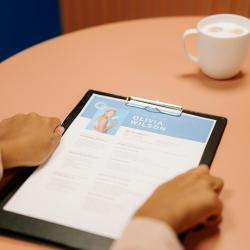How to Create an Effective Career Development Plan
Whether you're just starting out or looking to progress in your current field, a career development plan is a strategic tool that can help you achieve your career goals systematically. This article will guide you through the essential steps to create a robust and effective career development plan.
Step 1: Self-Assessment
The first step in creating an effective career development plan is understanding who you are. This involves assessing your interests, values, skills, and personality traits. Self-assessment can be done through introspection or by using formal tools such as personality tests, career inventories, and skills assessments. Identifying your strengths and weaknesses will provide a foundation for setting realistic career goals and understanding what career paths might suit you best.
Step 2: Define Your Career Goals
Once you have a clear understanding of your skills and interests, the next step is to define your career goals. It’s important to set short-term and long-term goals that are Specific, Measurable, Achievable, Relevant, and Time-bound (SMART). Short-term goals might include gaining new skills, earning a certificate, or getting a promotion, while long-term goals could be reaching a managerial position or switching to a different industry.
Step 3: Research and Explore Career Options
Now that you have a set of defined goals, it’s time to research the career options available to you. Explore different industries, job roles, and companies that align with your goals. Utilize online resources, attend career fairs, join professional networks, and consider informational interviews with people who are working in roles or industries that interest you. This research will help you identify the paths available to you and the steps needed to reach your desired position.
Step 4: Develop Skills and Gain Experience
Based on your research, identify the skills and experiences required for your desired career path, and set about acquiring them. This can include formal education, online courses, workshops, certifications, volunteering, or taking on new projects at your current job. The goal here is to fill any skill gaps and build a comprehensive resume that aligns with your career objectives.
Step 5: Create an Action Plan
An action plan will serve as a roadmap to guide you toward your career goals. Break down each goal into specific, manageable tasks and outline a realistic timeline to achieve them. An effective action plan includes deadlines, key milestones, resources needed, and potential challenges. This step-by-step strategy will keep you focused and motivated.
Step 6: Seek Support and Guidance
Mentorship can play a crucial role in career development. Seek guidance from mentors, colleagues, or career coaches who can provide valuable insights, feedback, and support as you work toward your goals. Additionally, expand your professional network by connecting with industry peers, joining professional groups, and attending relevant events. This network can open up opportunities and provide you with diverse perspectives on career advancement.
Step 7: Monitor Progress and Stay Flexible
Regularly review and assess your progress towards your career goals. Celebrate small victories, and be ready to make adjustments as needed. It's essential to stay flexible, as the job market and your personal circumstances can change. Remaining adaptable and open-minded will help you navigate obstacles and seize new opportunities that arise.
Conclusion
Creating a career development plan is a proactive step towards achieving personal and professional fulfillment. By assessing your strengths, setting clear goals, gaining relevant skills, and continuously monitoring your progress, you can chart a path that leads to career success. Remember, career development is an ongoing process that requires dedication, patience, and adaptability. With a carefully crafted plan, you can take charge of your career and turn your aspirations into reality.






















